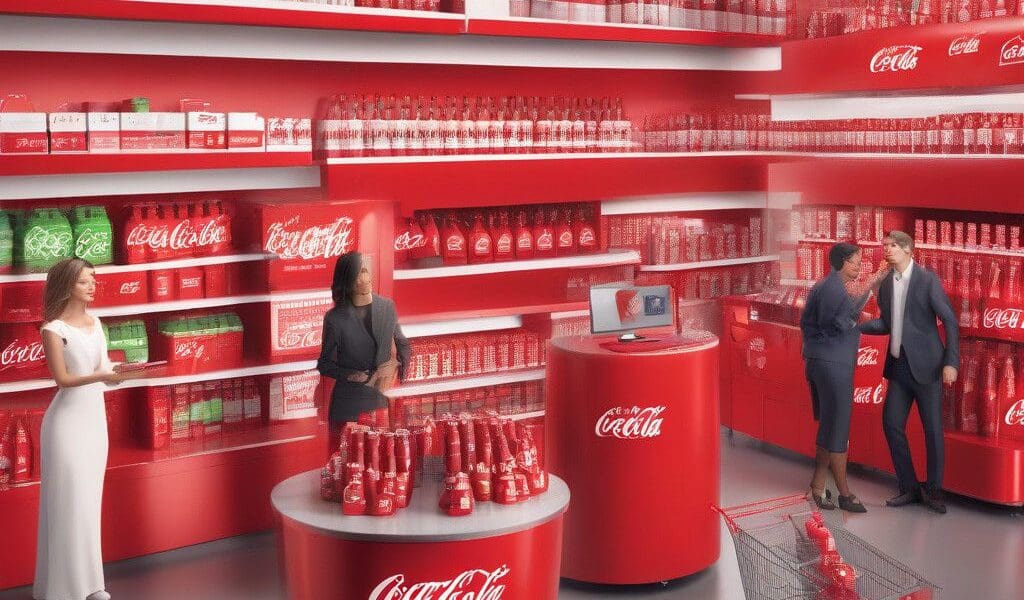In today’s digital landscape, businesses must prioritize their e-commerce platforms to remain relevant and competitive. This need for modernization has become apparent for numerous organizations, especially those in the B2B sector. Among these, Coca-Cola Inc. has taken significant steps to innovate its e-commerce capabilities. Recently, Coke One North America (CONA) Services unveiled a completely revitalized myCoke platform, aimed at enhancing customer engagement and streamlining processes across the board.
The myCoke platform serves as a key tool for over 220,000 stores, restaurants, and outlets across North America, underscoring its pivotal role in Coca-Cola’s operations. Built on Salesforce technology, this platform is designed not just to keep pace with evolving consumer expectations but to set a new benchmark in digital customer engagement. As noted by Samantha Mitchell, chief digital officer at CONA Services, “My-Coke.com is a next-generation digital customer engagement platform, allowing customers to order products, make payments, submit service requests, and receive support via web or mobile, anytime and anywhere.” This convenience is becoming increasingly essential as more businesses turn towards digital solutions.
One of the standout features of the revised myCoke platform is its enhanced product search functionality. In a world where speed and efficiency are crucial for maintaining customer satisfaction, facilitating quick product searches can significantly reduce the time spent on order placements. Users can now find their desired products faster, which can translate to increased sales for Coca-Cola. A more intuitive search tool also reduces frustration and encourages users to return to the platform, leveraging the importance of user experience in digital marketing efforts.
Additionally, the platform has streamlined the order and reorder processes. This enhancement is particularly vital for businesses that rely on constant supply and accurate inventory management. By making the ordering process more intuitive, myCoke empowers its users to manage their orders effectively without unnecessary delays. This change could significantly reduce cart abandonment rates—a key metric in conversion rate optimization. This psychological angle highlights how businesses can influence purchasing decisions through a smooth user journey.
Moreover, the myCoke platform introduces new payment options through Fiserv’s SnapPay, which allows customers to use digital wallets for payments. The adoption of alternatives to traditional payment methods showcases Coca-Cola’s commitment to accommodating a diverse range of customer preferences. Offering flexible payment options not only enhances the convenience factor but also reflects an understanding of the shift towards digital payment solutions prevalent among consumers today.
Building on these technological advancements, Coca-Cola aims to create a comprehensive customer engagement platform. Mitchell emphasized that her team is dedicated to enhancing digital marketing, campaigns, customer self-service, ordering, and payments. This holistic approach is crucial in fostering customer loyalty and satisfaction. For example, integrating customer feedback mechanisms can lead to targeted outreach strategies that resonate more effectively with specific audience segments.
Coca-Cola’s strategic initiatives in revamping the myCoke platform are timely, especially considering the evolving landscape of e-commerce. As more consumers, particularly Generation Y, embrace online shopping, companies must be adaptable to capture this growing market. According to recent trends, brands like Zevia have rapidly gained traction in the online soda sales space, even surpassing established names like Pepsi. This shift highlights the need for established brands like Coca-Cola to innovate continually to retain their competitive edge.
The collaboration with UCCnet’s web-based supply chain network further enhances Coca-Cola’s operational efficiency. By optimizing store deliveries, Coca-Cola positions itself to respond quickly to market demands—a critical factor in today’s fast-paced retail environment. Efficient logistics directly contributes to improved customer satisfaction and can significantly impact sales figures.
While these advancements paint a bright future for Coca-Cola’s digital engagement, it’s essential to remember the human aspect of digital marketing. As the company encourages employees to think twice before posting online, it highlights the delicate balance between promoting the brand and maintaining professionalism. A strong digital presence is not merely about innovation but also about fostering a responsible and engaged online community.
In conclusion, the revamped myCoke platform exemplifies Coca-Cola’s forward-thinking approach in a highly competitive market. By focusing on improved customer experiences through advanced e-commerce solutions, the company is setting a new standard for digital customer engagement. As online preferences evolve, businesses across all sectors must adopt similar strategies to ensure they not only meet but exceed customer expectations.
Digital marketing tactics, such as streamlined ordering processes, expanded payment options, and effective customer engagement strategies, will play pivotal roles in ensuring sustained growth. As Coca-Cola continues to adapt and innovate, it offers valuable lessons for businesses seeking success in the fast-evolving digital marketplace.












